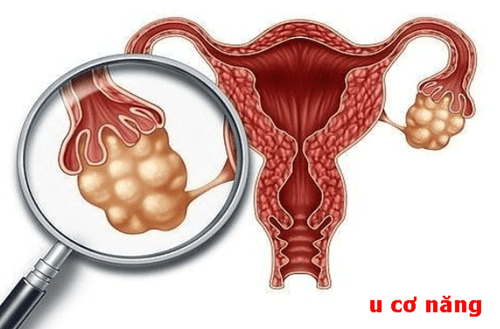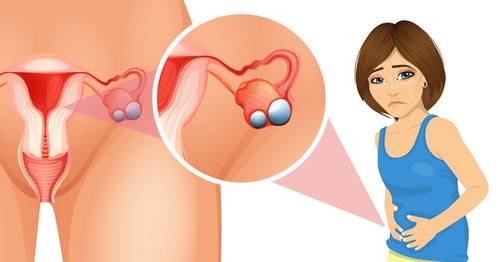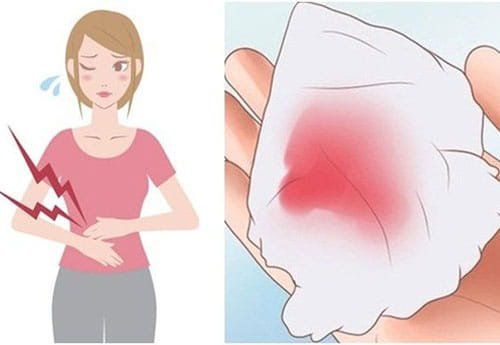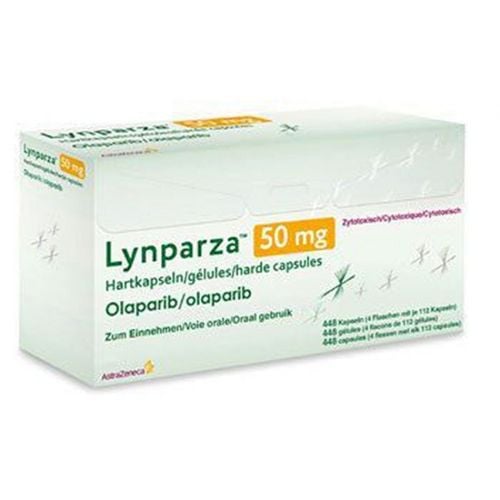This is an automatically translated article.
The article was professionally consulted by Specialist Doctor I Tran Thi Phuong Loan - Obstetrician and Gynecologist - Department of Obstetrics and Gynecology - Vinmec Phu Quoc International General HospitalOvarian cysts exist with many different forms and have different complications, the dangerous complication is torsion of the ovarian cyst. Women of childbearing age, especially women aged 30 and above, are susceptible.
1. Signs of ovarian cysts
A few signs that may indicate ovarian cysts are as follows:
There are pain appearing in the abdomen: often this sign will be easily confused with other diseases such as colon disease... Therefore, a lot of people often ignore this sign. Therefore, when you see the above symptoms, you should go to medical facilities for the most accurate diagnosis and timely treatment. Irregular menstruation: this is an easy sign to recognize if you have an ovarian cyst. Menstruation will be erratic, sometimes less, sometimes more, and there will be pain in the menstrual cycle. Difficulty urinating: There are signs of frequent urination, painful urination, frequent urination, sometimes not wanting to go. This condition occurs because a large tumor presses on the bladder. Discomfort in the uterus and ovaries: this sign warns ovarian cysts are forming and growing. The tumor grew, causing the ovary to press on other parts, causing pain, ie the abdomen. Nausea, vomiting: this can be a sign of torsion complications or because the tumor ruptures causing pain, often accompanied by nausea, vomiting or bleeding in the abdomen. Patient has unexplained weight gain Feeling of breast tenderness Some signs that may indicate ovarian cysts are as follows:
There are pain appearing in the abdomen: Often this sign will be easily confused with other diseases such as colon disease... Therefore, many people often ignore this sign. Therefore, when you see the above symptoms, you should go to medical facilities for the most accurate diagnosis and timely treatment. Irregular menstruation: This is an easy sign to recognize if you have an ovarian cyst. Menstruation will be erratic, sometimes less, sometimes more, and there will be pain in the menstrual cycle. Difficulty urinating: There are signs of frequent urination, painful urination, frequent urination, sometimes not wanting to go. This condition occurs because a large tumor presses on the bladder. Discomfort in the uterus and ovaries: this sign warns ovarian cysts are forming and growing. The tumor grew, causing the ovary to press on other parts, causing pain, ie the abdomen. Nausea, vomiting: This can be a sign of complications of torsion or because the tumor ruptures causing pain, often accompanied by nausea, vomiting or bleeding in the abdomen. Patient has unexplained weight gain Feeling of breast pain.

Những cơn đau xuất hiện ở vùng bụng có thể là dấu hiệu của u nang buồng trứng
2. Progression of ovarian cyst disease
In the early stages, the disease often has no obvious symptoms. Usually detected only during abdominal ultrasound or routine examination.
Usually, it is very rare in subjects with cysts that the size of the tumor does not increase.
When the size of the tumor grows, the abdomen will become larger, following the complications due to the compression of the tumor on the organs in the body...
When the ovarian cyst turns into a twisted tumor: mass The tumor is twisted around the stalk, causing the circulation to the ovary to be affected. Due to stagnation of dirty blood, the tumor will become larger, while lack of blood supply leads to necrosis or rupture. When the tumor is twisted, immediate surgery is required.
Torsion cysts can occur with any type of tumor. Tumors that are often prone to torsion are small and have long, non-adherent stalks.
Manifestations of people with twisted cysts are nausea, vomiting, pelvic pain, abdominal pain. Vaginal lumps are tight, have little movement, and are painful when pressed.
In case of rupture of the cyst, the patient will experience sudden abdominal pain, some may have internal bleeding that makes the patient feel dizzy. Vaginal examination showed that the tumor was difficult to identify, and the uterus was painful due to the moving tumor. Patients often have an infection, abdominal distention after the cyst ruptures.
When the tumor grows for a long time and has a large size, it will compress the bladder causing urinary frequency, or constipation, for very large tumors, it will compress the vena cava causing collateral circulation and edema of the lower extremities...
There is no phenomenon that ovarian cysts will turn into ovarian cancer for a long time, but ovarian cancer is not detected early, so the disease is more serious.
3. Some common types of ovarian cysts

Thường thì u nang cơ năng sẽ tự biến mất sau một thời gian nhất định
Thyroid cyst: common in pregnant women, infertility, trophoblastic cancer... Entire cyst: will progress silently and last for a while, this is a dangerous tumor cancer, should be detected early and treated promptly. Usually functional cysts do not need to be treated and will go away on their own after a few menstrual periods, but this type of tumor will have more dangerous complications such as cyst torsion, cyst rupture... For organic cysts, it is necessary to Get surgery as soon as possible to avoid the risk of complications later.
Ovarian cysts not only affect the reproductive health of the patient, but also have many potential risks of infertility, infertility and more dangerous than life-threatening for women. Women need to have regular health check-ups to detect and treat diseases in time.
Please dial HOTLINE for more information or register for an appointment HERE. Download MyVinmec app to make appointments faster and to manage your bookings easily.













